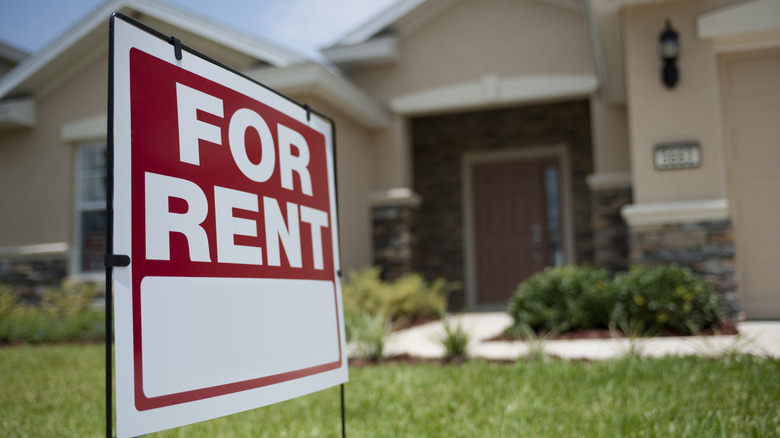The Average Net Worth Of Renters Vs Homeowners Might Catch You Off Guard
Although renting and owning can both help to build wealth, according to a National Association of Realtors (NAR) report, it's far from an apples-to-apples comparison. NAR highlighted how homeowners in 2025 tower in net worth over renters by an incredible 43 times. NAR arrived at that value by using the Federal Reserve's 2022 Survey of Consumer Finances (SCF) and then extrapolating 2025 values. More specifically, homeowners typically have a net worth of $430,000 in comparison to $10,000 for renters. Moreover, property owners have seen a more substantial growth in wealth with homeowners coming in at a wealth increase of 45% since 2019, according to NAR's chief economist Lawrence Yun. Meanwhile, renters saw a 36% growth with a stalling-out period over the past three years. When comparing 2022 and 2025, the homeowner advantage was 39 times higher, with figures of $392,600 for owners and $10,400 for renters. For renters, this demonstrated a wealth shrinkage of $400.
The NAR article cited a Federal Reserve Bank of New York survey indicating that more than 70% of renters would rather own a home while fewer than 15% prefer to rent. NAR's senior economic research analyst, Hannah Jones, anticipated a continuation in the wealth gap because of higher home prices and mortgage interest rates and less home construction. She referenced how Trump's tariffs will impact the housing market because of building material costs. So, circumstances may price some renters wishing to buy out of the housing market for a while.
Going beyond net worth: a look at the benefits of renting
If wanting to rent rather than own, should someone let society pressure them into buying a house? Not necessarily. Looking at the financial decision logically, a renter doesn't have to save up a down payment that, ideally, would be 20% of the home's purchase price. As of October 2025, the average home value is $363,932 — and 20% of that is nearly $73,000. Closing costs are an average of 2-5% of the home's price, so that's another $7,300-$18,000. Renters don't typically pay property taxes, maintenance and repair costs, or full utility bills (generally splitting the last item with the homeowner). Renter's insurance protecting a person's belongings tends to be significantly less than a full homeowner's policy. Plus, although the renter isn't gaining equity into the property, they have much more flexibility to move elsewhere when desired without having the burden of a mortgage.
If big city living appeals, then renting can make even more sense. In 45 out of 50 of the country's largest metropolitan areas in 2023, it was cheaper to rent a starter home than to buy a similar one — specifically in cities like Austin, Texas; San Francisco, California; Seattle, Washington; Boston, Massachusetts; and Portland, Oregon. Conversely, if the dream of home ownership exists, metropolitan areas where it is cheaper to buy than rent include Memphis, Tennessee; Pittsburgh, Pennsylvania; Birmingham, Alabama; St. Louis, Missouri; and Baltimore, Maryland.

